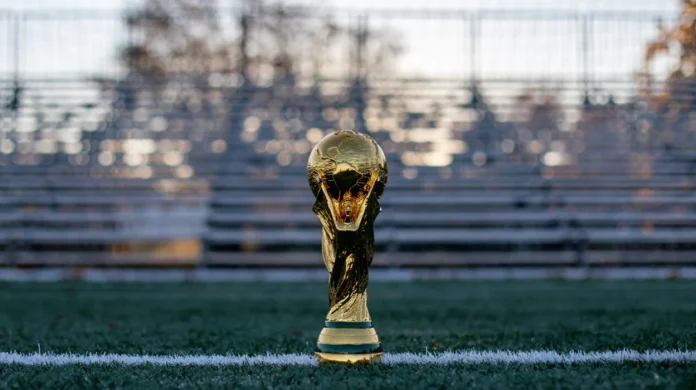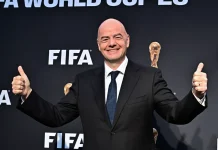FIFA World Cup ticket pricing has evolved dramatically over the past three decades, with the cost of attending the tournament—especially the final—soaring far beyond both inflation and the average rise in global incomes. For example, the price to attend the World Cup final has increased by 650% since 1990, while global inflation over the same period was only 90%. This outpaces even the European Football Championship, which saw a 300% increase in ticket prices over a similar timeframe.
Historically, FIFA set ticket prices according to a tiered structure based on match stage and seat location, with four distinct categories. While this approach ostensibly allowed for some accessibility, the reality is that even the cheapest tickets for high-profile matches are increasingly out of reach for ordinary fans. For instance, in 2018, final match tickets ranged from $455 to $1,100, compared to just $60 to $475 in 1994.
Recent Developments and Fan Backlash
The trend of aggressive price increases continues with the 2025 Club World Cup and the upcoming 2026 World Cup. For the 2025 Club World Cup, FIFA initially priced final tickets as high as $2,230, but sluggish sales and tepid fan interest forced the organization to slash prices dramatically—down to $300 for the cheapest final tickets and $140 for semi-finals. This reactive approach, rather than a proactive commitment to accessibility, indicates a prioritization of profit over fan engagement.
For the 2026 World Cup, premium hospitality packages have been announced at prices ranging from $3,500 to over $70,000, further fueling accusations that FIFA is catering to elite audiences and corporate clients at the expense of the broader fan base. The result is a growing sense of alienation among ordinary supporters, many of whom feel priced out of the world’s most popular sporting event.
Economic Rationale vs. Ethical Responsibility
FIFA’s pricing strategy can be partially explained by basic economic theory. As a monopoly in the global football market, FIFA faces overwhelming demand for a finite number of tickets. In the 2006 World Cup, for example, demand exceeded supply by a factor of 10, even though tickets were not considered “cheap” at the time. FIFA has historically rationed tickets through random allocation and personalized sales to deter black market activity, but this has not prevented prices from escalating, especially on secondary markets.
However, the ethical dimension cannot be ignored. As the governing body of world football, FIFA has a responsibility to balance commercial interests with the need to make the sport accessible to all fans, regardless of socioeconomic status. The current pricing trajectory undermines this responsibility, reinforcing perceptions of greed and exclusion.
Secondary Market and Scalping Issues
Another critical issue is the rampant secondary market and ticket scalping. Despite FIFA’s efforts to personalize tickets and restrict resale to official platforms, tickets routinely appear on third-party sites at many times their face value. For instance, tickets for the 2018 final were being auctioned for nearly double their official price. This not only exacerbates affordability issues but also raises questions about the effectiveness and transparency of FIFA’s ticketing system.
Transparency and Governance Concerns
FIFA’s approach to ticket pricing and distribution is further undermined by persistent concerns about transparency and governance. The organization has faced repeated scandals and allegations of corruption, eroding public trust. Calls for open-book reporting, external audits, and the publication of executive salaries have grown louder, but meaningful reforms remain slow.The lack of a robust, transparent framework for ticket allocation and pricing only deepens suspicions that FIFA’s primary motivation is profit maximization rather than the promotion of football as a global, inclusive sport.
Impact on Attendance and Fan Engagement
The direct consequence of these pricing policies is a decline in attendance and a weakening of the tournament’s atmosphere. The 2002 World Cup, which saw an unprecedented price hike, recorded the lowest attendance in 20 years. More recently, the lack of enthusiasm for the expanded Club World Cup—despite price cuts—signals a growing disconnect between FIFA and its core audience. If the trend continues, the World Cup risks becoming an event for the wealthy and corporate elite, rather than a celebration of global football culture.
FERW’s Perspective: Ethics and Social Responsibility
FIFA Ethics and Regulations Watch (FERW) exists to monitor and report on the ethical standards of FIFA, ensuring that the organization upholds its responsibilities to fans, players, and the broader football community. FERW’s mission is rooted in the belief that football should be free, fair, and accessible, and that FIFA must act as a responsible steward of the world’s game.
FERW has identified several key pillars for ethical oversight, including transparency, anti-corruption, non-discrimination, and the protection of human rights. In the context of ticketing, these principles translate into a clear expectation that FIFA should:
- Set ticket prices at levels that reflect the economic realities of fans in host and participating countries.
- Ensure a transparent and fair allocation process, with clear rules and oversight.
- Prevent and penalize ticket scalping and unauthorized resale.
- Provide special provisions for disadvantaged or marginalized groups to attend matches.
- Report openly on ticket sales, pricing decisions, and the distribution of revenues.
Recommendations from FIFA Ethics and Regulations Watch (FERW)
In light of the above analysis, FERW recommends the following actions to restore trust and ensure that FIFA’s ticketing policies align with its ethical obligations:
1. Implement Transparent Pricing Structures
- Publish detailed breakdowns of ticket pricing by category, match, and location well in advance of sales.
- Justify price increases with clear, data-driven explanations, including references to inflation, local economic conditions, and event costs.
2. Cap Price Increases and Ensure Affordability
- Limit annual or tournament-to-tournament price increases to a reasonable percentage, indexed to inflation and average wage growth in host countries.
- Reserve a significant proportion of tickets—at least 30%—at affordable prices for ordinary fans, students, and local residents.
3. Strengthen Anti-Scalping Measures
- Require all tickets to be personalized and linked to verified identities.
- Establish a robust, FIFA-controlled resale platform with strict price caps to prevent profiteering.
- Work with law enforcement and digital platforms to monitor and shut down unauthorized ticket sales.
4. Enhance Transparency and Public Reporting
- Publish comprehensive reports on ticket allocation, sales, and revenue distribution after each tournament.
- Disclose the criteria and process for awarding hospitality and VIP packages.
5. Promote Social Inclusion and Community Access
- Allocate a portion of tickets free or at nominal cost to underprivileged groups, schools, and grassroots organizations in host countries.
- Partner with NGOs and community groups to identify deserving recipients.
6. Reform Governance and Oversight
- Create an independent ethics and compliance committee with the authority to review and audit ticketing processes.
- Open all ticketing and hospitality contracts to third-party scrutiny and public disclosure.
7. Engage Fans in Policy Development
- Establish formal channels for fan input and feedback on ticketing policies, including regular consultations with supporter groups and independent watchdogs like FERW.
By adopting these recommendations, FIFA can move toward a ticketing system that is not only economically rational but also ethically responsible and socially inclusive. The World Cup is more than a commercial spectacle—it is a global celebration of football that should be accessible to all. Only through genuine reform and a renewed commitment to transparency and fairness can FIFA restore its credibility and fulfill its mission as the guardian of the world’s game.













